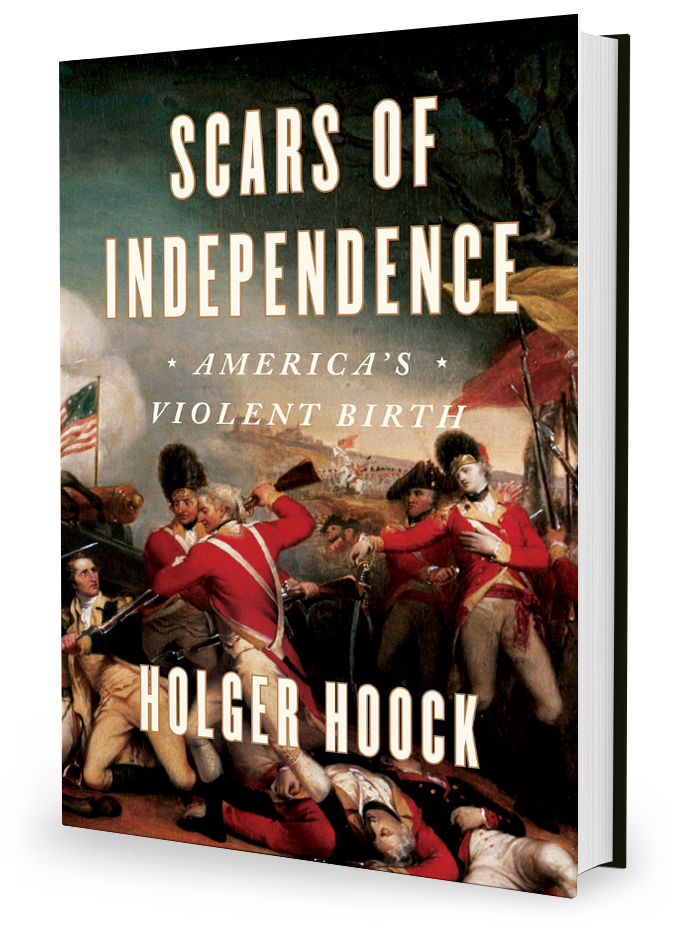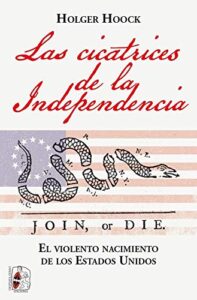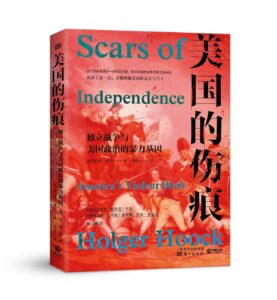“Drawing upon impressive research, [Hoock] makes a fluent, original and thought-provoking contribution to American Revolutionary scholarship … Hoock compellingly argues that the era was characterized by far more pervasive brutality—both physical and psychological—than prevailing perceptions of a high-minded fight for liberty might suggest. … Well-crafted vignettes reveal how the violence unleashed by the Revolution spread far and wide, leaving few communities immune from its effects.” —The Wall Street Journal
“Unsparing…a fine new book.” The Economist
“[A] sobering corrective to the sanitized version of the American Revolution passed down through generations … [and] a fascinating case study in the power of myth-making. … Scars of Independence eschews comforting good/bad dichotomies in favor of assessing the past in all its complexity and ambiguity. … [A] balanced, unvarnished portrait.” – The Boston Globe.
“[R]evelatory… Scars of Independence [forces] readers to confront the visceral realities of a conflict too often bathed in warm, nostalgic light…. [Hoock] marshals a good deal of startling new evidence, the fruits of prodigious research in British archives too rarely used by historians of colonial America…. The myth of an America conceived in love and sprung fully formed from the thigh of George Washington misshapes our present as much as it distorts our past. Hoock’s research casts a startling light on that primal scene. We must not turn away.”
—Jane Kamensky, The New York Times Book Review
“Certainly, no reader will ever be able to imagine the Revolution again as the pop-gun pageantry that those Philadelphia school talks instilled in us kids … Hoock makes the wise point that, given what wars of national liberation are actually like, Americans should perhaps be disabused of our enthusiasm for nation-building and democracy exportation. … The Revolution, he shows, was far more brutal than our usual memory of it allows.” – Adam Gopnik, The New Yorker
“Hoock is …. right to document the harrowing violence, often opportunistic and sadistic, that was ‘fundamental’ to how both sides experienced ‘America’s founding moment.'” Washington Post
A “fresh look at the American Revolution. … well researched, and written in compelling language that’s easily understandable to even a casual reader of history.” Russell Mills @rtmradio
“While the justice of the colonies’ cause is never brought into question, Hoock’s book serves as fascinating reminder that the Patriot’s rightful struggle for independence was not without ethical hiccups.” International Business Times
“A fresh approach to a well-trod subject… Deeply researched and buttressed by extensive useful endnotes, this is history that will appeal to both scholars and general readers. The author presents his grim narrative in language that is vivid without becoming lurid … accomplished, powerful presentation of the American Revolution as it was, rather than as we might wish to remember it.”—Kirkus Reviews (starred).
“Hoock has written a history of violence in the Revolutionary War that is as fascinating as it is enlightening.” —Library Journal (starred)
“The America of Scars of Independence is both a philosophy and a country in process of being invented, one that looks a lot more like the one we live in today than any version we’ve seen before.” – Under the Radar – MILITARY.COM
“Hoock strikes an effective balance between description and broader historical analysis, crafting a gripping narrative that holds appeal for general audiences and historians alike.” – Publishers Weekly The full review is here.
“[O]utstanding and long-overdue. [Scars of Independence] dares to look beyond the principles and perceptions of righteousness that pervade much of the popular literature on the subject, illustrating that the operational aspects of the war were fraught with atrocities and injustices … committed by all sides.” Journal of the American Revolution
“[Hoock] vividly presents a grittier, unvarnished narrative of America’s first civil war … After this, readers will see America’s war for independence in an altogether new light.” – Fort Worth Star Telegram
The American Revolution is portrayed “in vivid detail and comprehensive understanding in Hoock’s important and corrective account.” – MHQ (Quarterly Journal of Military History) Spring 2017.
“Engrossing … This is difficult but necessary reading, a book that reminds us that victory in our ‘Glorious Cause’ came at a terrible cost.” – Booklist
“In this American Revolution, neighbors killed neighbors. Patriots slaughtered American Indians, and vice versa. British soldiers committed mass atrocities on the battlefield. Loyalists were tarred, feathered and worse by Patriot mobs. Hoock plays no favorites as he makes clear through copious research that there was nothing clean about the Revolution. It was messy, complicated business, drenched in blood. It was, after all, war.” Dallas Morning News
“The product of prodigious research, Scars of Independence … enhance[s] our understanding of the American Revolution and … its legacy.” – Pittsburgh Post-Gazette
“Holger Hoock plucks at the sutures of the American Revolution.” – Vanity Fair
“Hoock has given us a well-researched appraisal of the events that happened during the Revolutionary War and the moral dilemmas they caused…an interesting book that gives thought to the violence that can occur when ideology reaches the boiling point.” – Fredericksburgh Free Lance-Star (Editor’s Pick).



